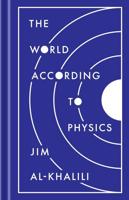Publisher's Synopsis
Julian Schwinger was one of the leading theoretical physicists of the twentieth century. His contributions are as important, and as pervasive, as those of Richard Feynman, with whom (and with Sin-itiro Tomonaga) he shared the 1965 Nobel Prize for Physics. Yet, while Feynman is universally recognized as a cultural icon, Schwinger is little known even to many within the physics community. In his youth, Julian Schwinger was a nuclear physicist, turning to classical electrodynamics after World War II. In the years after the war, he was the first to renormalize quantum electrodynamics. Subsequently, he presented the most complete formulation of quantum field theory and laid the foundations for the electroweak synthesis of Glashow, Weinberg, and Salam, and he made fundamental contributions to the theory of nuclear magnetic resonance, to many-body theory, and to quantum optics. He developed a unique approach to quantum mechanics, measurement algebra, and a general quantum action principle.;His discoveries include 'Feynman's' parameters and 'Glauber's' coherent states; in later years, he also developed an alternative to operator field theory which he called Source Theory, reflecting his profound phenomenological bent. His late work on the Thomas-Fermi model of atoms and on the Casimir effect continues to be an inspiration to a new generation of physicists. This biography describes the many strands of his research life, while tracing the personal life of this private and gentle genius.











